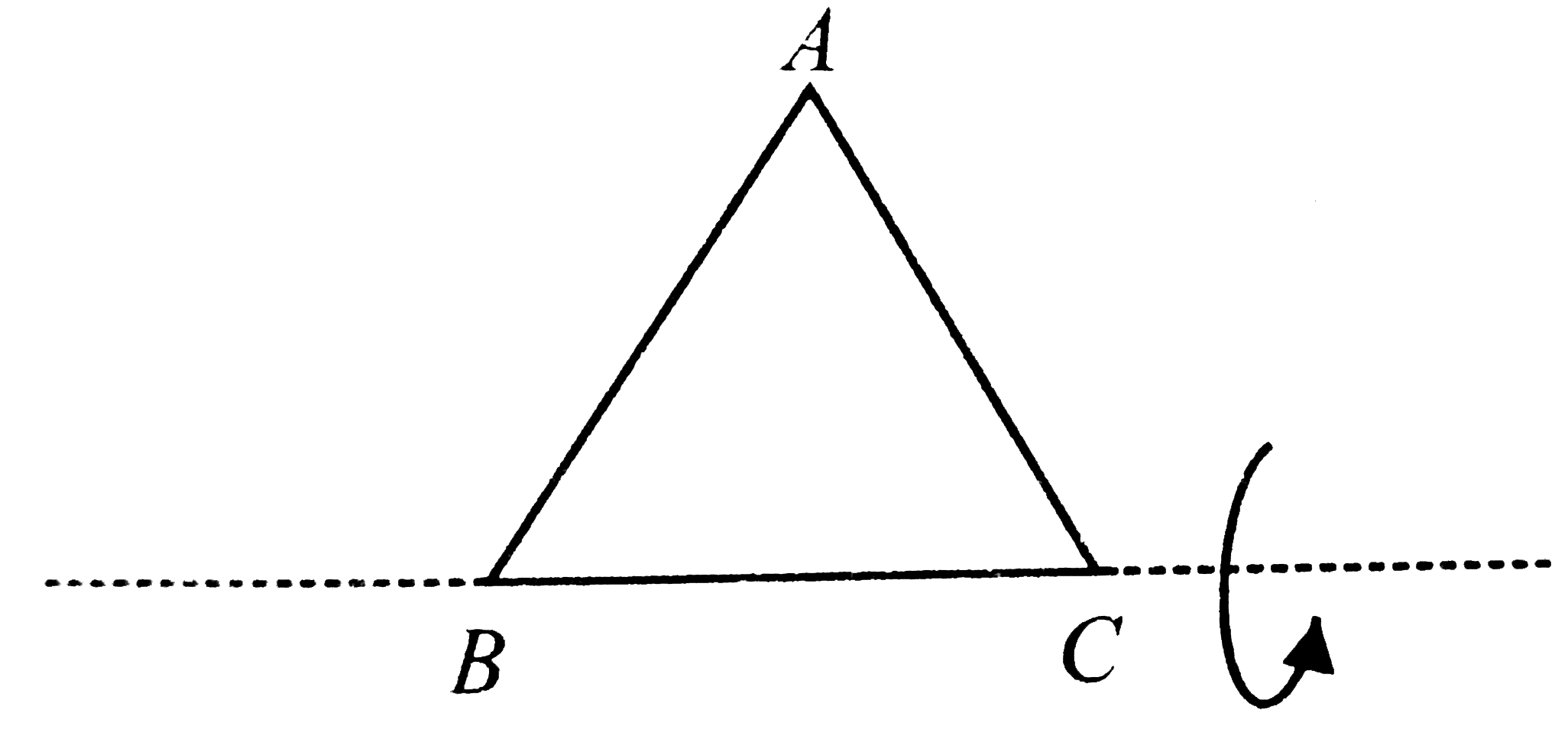A rigid bar of mass M is supported symmetrically by three wires each of length l. Those at each end are of copper and the middle one is of iron. The ratio of their diameters, if each is to have the same tension, is equal to
Ycopper/Yiron
√YironYcopper
Y2ironY2copper
YironYcopper
The correct Answer is:B
We know that Young’s modulus Y=StressStrain=F/AΔL/L=F/A×LΔL
=Fπ(D/2)2×LΔL=4FLπD2ΔL
⇒D2=4FLπΔLY⇒D=√4FLπΔLY
As F and LΔL are constants
Hence, D∝√1Y
So the required ratio is, DcopperDiron=√YIronYcopper
Topper's Solved these Questions
- ELASTICITYBook:ERRORLESSChapter:ELASTICITYExercise:NCERT BASED QUESTIONS (Work Done in Stretching a Wire)
Explore 13 Videos
- ELASTICITYBook:ERRORLESSChapter:ELASTICITYExercise:NCERT BASED QUESTIONS (Bulk Modulus)
Explore 11 Videos
- BASIC MATHEMATICS AND VECTORSBook:ERRORLESSChapter:BASIC MATHEMATICS AND VECTORSExercise:Assertion & Reason
Explore 15 Videos
- FLUID MECHANICSBook:ERRORLESSChapter:FLUID MECHANICSExercise:ASSERTION AND REASON
Explore 23 Videos
Similar Questions
A rigid bar of mass 15 kg is supported symmetrically by three wires each 2 m long. Those at each end aer of copper and middle one is of iron. Determine the ratio of their diameters if each is to have the same tensoin. Young's modulus of elasticity for copper and steel are 110×109Nm−2 and 190×109Nm−2 respectively.
View SolutionTwo wires of equal length one of copper and other of manganin have the same resistance. Which wire is thicker?
View Solution
Knowledge Check
A rigid bar of mass M is supported symmetrically by three wires each of length l. Those at each end are of copper and the middle one is of iron. The ratio of their diameters, if each is to have the same tension, is equal to
AYcopperYironB√YironYcopperCY2ironY2copperDYironYcopperChoose the most appropriate option.
A rigid bar of mass 15 kg is supported symmetrically by three wires each 2 m long. Those at each end are of copper and the middle one is of iron. Determine the ratio of their diameters if each is to have the tension.A12.6:2B1.31:1C4.65:3D2.69:4A rigid bar of mass M is supported symmetrically by three wires each of length I. Those at each end are of copper and the middle one is of iron. What is the ratio of their diameters DcopperDiron if each wire is to have ratio same tension?
AYcopperYironB√YironYcopperCY2ironY2copperDYironYcopper
Two wires of equal length, one of copper and the other of manganin have the same resistance. Which wire is thicker ?
View SolutionTwo wires are of the same length, same radius, but one of them is of them is of copper and the other is of iron. Which will have more resistance ?
View SolutionA rigid bar of mass 15 kg is supported symmetrically by three wires, each of length 2 m. The wires at the endpoints are made of copper and the middle one is made of steel. If the tension in each wire is the same, then the diameter of copper wire to the diameter of steel wire is [Given, Ycopper=1.1×1011N m−2andYsteel=1.9×1011N m−2]
View SolutionTwo copper wires A and B of length l and 2l respectively, have the same area of cross-section. The ratio of the resistivity of wire A to the resistivity of wire B is
View SolutionThree identical rods, each of mass m and length l, form an equaliteral triangle. Moment of inertia about one of the sides is

View Solution